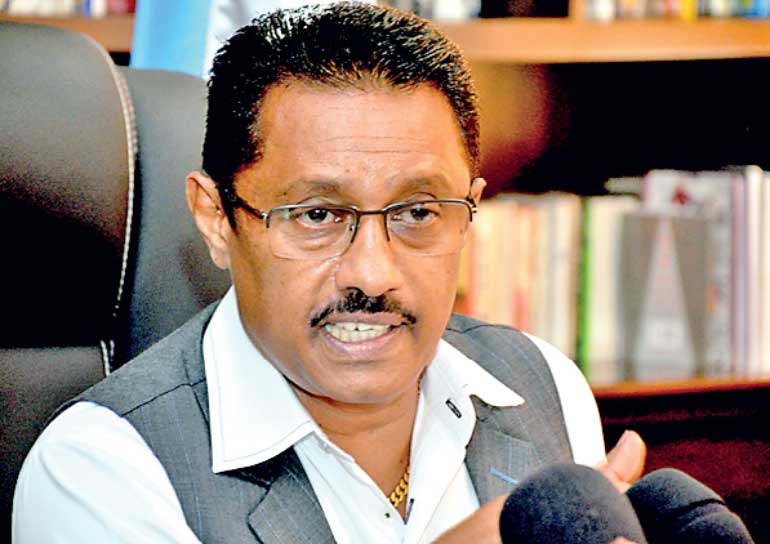Friday Feb 20, 2026
Friday Feb 20, 2026
Tuesday, 1 February 2022 02:43 - - {{hitsCtrl.values.hits}}

PUCSL Chairman Janaka Rathnayake - Pic by Lasantha Kumara
By Charumini de Silva
An aggressive yet persuasive stance by the Public Utilities Commission (PUCSL) by ensuring there is no regular load shedding amidst the energy crisis has averted an economic loss of Rs. 31 billion in the past three weeks, it has been revealed.
“Over Rs. 31 billion has been saved to the national economy from 8 to 31 January. This amount otherwise would have been the economic cost due to loss of electricity,” PUCSL Chairman Janaka Rathnayake said yesterday.
“Given the fact that the financial stability of the economy is also not sound, I believe the saving was a great achievement,” Rathnayake told journalists.
He also said that the commission had not yet considered the option of emergency power purchase plans.
“Emergency power purchase cannot be decided in haste, as it is a costly affair and the Commission has traditionally worked to limit costs and reduce load shedding by the Ceylon Electricity Board (CEB). We are trying our best to avoid such circumstances,” Rathnayake said.
The Commission Chief noted that further details of how much emergency power would be procured and at what cost, would be decided if the need arose, hoping that the demand could be met with the sources of generation getting stabilised.
“There is an entire process if we want to explore the emergency power purchase plan. We are trying our level best to avoid exercising that expensive option,” he said.
Rathnayake also pointed out that the power regulator had saved Rs. 571 billion of public funds over the last five years by not approving unnecessary emergency power and non-long-term power purchases.
Despite the uninterrupted power supply, the power regulator expressed disappointment that the consumers had not heeded its request to “go into energy saving mode”.
“We observed that the contribution of the consumers was well below expectations. Therefore, I appeal to the public to preserve energy and reduce the use of high voltage electric appliances especially during the peak hours of 5 a.m. to 7 a.m. and 6 p.m. to 10 p.m. The commission is doing its best to ensure no load shedding and we expect the same commitment from the consumers as it is their responsibility as well to support and overcome the situation,” he stressed, warning that the failure to do so would lead to power cuts in near future.
The PUCSL proposed a number of electricity conservation measures that could be implemented with the assistance of consumers, such as limiting use of lights, maintaining air conditioner at energy conserving modes/temperatures at 26 Celsius, restricting use of elevators and regulating street lamp usage. As the regulator’s estimate these measures alone will save up to 3.7 gWh per day, which equals to shutting down a 150 MW power plant for 24 hours.
Explaining that the country is experiencing the dry season till April, Rathnayake highlighted the need to reduce unnecessary energy consumption at all ends, flagging red on the depleting water levels of the reservoirs.
“The water levels have dropped to 56% at present and Samanalawewa power station water levels have dropped to 47%. On a normal instance, we need around six mWh and now it has increased to 12 mWh, which means we have to issue more water to generate one unit. If this continues, then our water levels will soon drop and there will not be sufficient water for agriculture purposes,” he cautioned.
